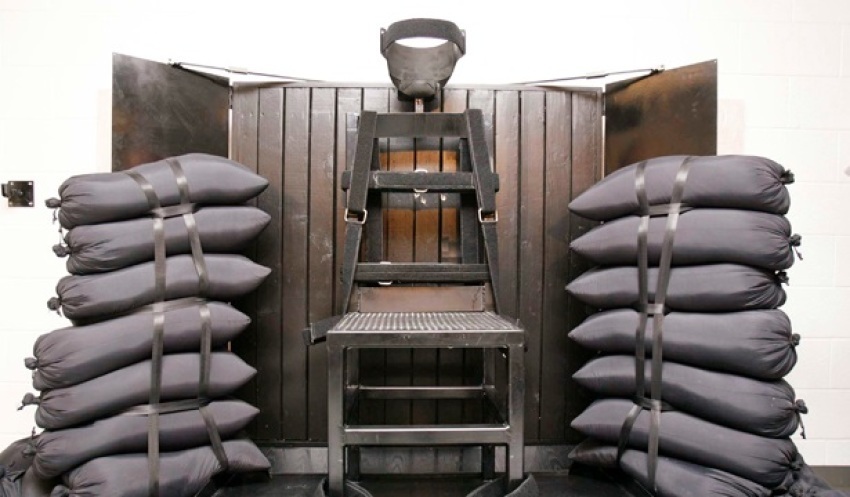Utah Allows Death Penalty by Firing Squad as Drug Supply for Lethal Injection Dwindles

On Monday, Utah Gov. Gary Herbert signed a bill into law that allows the use of a firing squad should drugs for lethal injection not be available.
"We regret anyone ever commits the heinous crime of aggravated murder to merit the death penalty and we prefer to use our primary method of lethal injection when such a sentence is issued," Herbert's spokesman Marty Carpenter said at a press conference. "However, when a jury makes the decision and a judge signs a death warrant, enforcing that lawful decision is the obligation of the executive branch."
Utah is the second state that allows the use of a firing squad; Oklahoma also allows the practice, and it could spread to other states as drug supplies become scarce. Alabama is currently considering a bill that would make firing squads legal as well. The most popular drug used in lethal injections, pentobarbital, has been prevented from being sold to the United States after European manufacturers learned of its use in executions. Since then, states with low supplies have turned to other methods of concocting a lethal combination of drugs. However, those same drugs have often had disastrous effects.
Texas recently used its second-to-last dose of drugs yet has six more inmates scheduled for execution. What it plans to do next has yet to be decided by state officials. Utah last used the firing squad in 2010 to put Ronnie Lee Gardner to death for the murders of a bartender and lawyer. He also wounded a bailiff during an attempted escape from the courthouse. The bailiff's widow has said that she supports bringing back the firing squad.
Oklahoma is now considering using a gas chamber with a different and new type of gas. The new manufactured gas would deplete the oxygen supply in the blood, while the traditional gas was poisonous to inmates.
"Nitrogen hypoxia is a painless form of capital punishment that is simple to administer, doesn't depend upon the aid of the medical community, and is not subject to the supply constraints we are faced with when using the current three-drug cocktail protocol," Rep. Mike Christian (R-Oklahoma City), the sponsor of the bill, told The Huffington Post.



























